July 31 stands as one of history’s most eventful days, witnessing the rise and fall of empires, groundbreaking discoveries, and moments that shaped our modern world across centuries of human achievement.
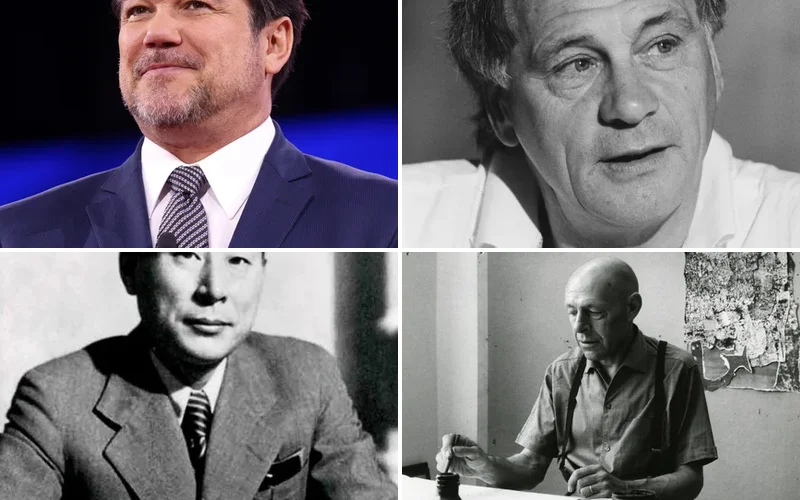
Politics and Government Events on July 31
1932 – Nazi Party Wins Major Victory in German Elections
The NSDAP (Nazi Party) captured more than 38% of the vote in German elections, marking a decisive political breakthrough. This electoral success positioned Adolf Hitler’s party as the dominant force in German politics.
The massive voter support demonstrated the Nazi Party’s growing influence during Germany’s economic crisis. This election result paved the way for Hitler’s eventual rise to power and the transformation of German society.
1938 – Bulgaria Signs Balkan Non-Aggression Pact
Bulgaria formally signed a non-aggression pact with Greece and other Balkan Antanti states including Turkey, Romania, and Yugoslavia. This diplomatic agreement aimed to stabilize the volatile Balkan region before World War II.
The pact represented a significant effort to prevent regional conflicts through diplomatic cooperation. However, the agreement would prove fragile as European tensions escalated in the following years.
1992 – Georgia Joins the United Nations
The newly independent nation of Georgia officially became a member of the United Nations following the collapse of the Soviet Union. This membership marked Georgia’s recognition as a sovereign state on the international stage.
Georgia’s UN membership represented a crucial step in establishing diplomatic relations with the global community. The country began participating in international peacekeeping and humanitarian missions as a full member nation.
2006 – Fidel Castro Transfers Power to Raúl Castro
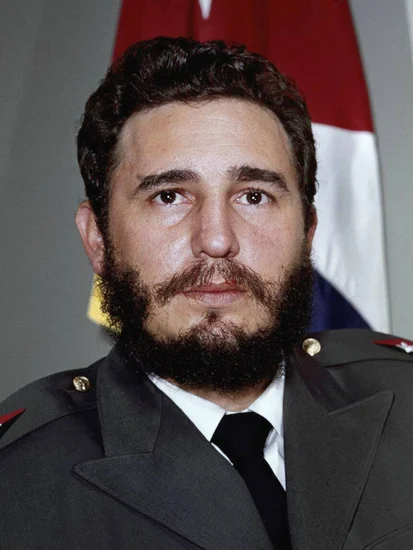
Cuban leader Fidel Castro handed over power to his younger brother Raúl Castro due to serious health concerns. This transfer marked the end of Fidel’s nearly five-decade rule over the communist island nation.
The power transition represented a significant moment in Cuban history and Cold War politics. Raúl Castro would continue leading Cuba while implementing gradual economic and social reforms.
Military and Naval History on July 31
1904 – Battle of Hsimucheng During Russo-Japanese War
Imperial Japanese Army units defeated Imperial Russian Army forces in a strategic confrontation at Hsimucheng. This battle demonstrated Japan’s growing military capabilities against a major European power.
The Japanese victory strengthened their position in Manchuria and boosted national confidence. This engagement contributed to Japan’s eventual triumph in the Russo-Japanese War, establishing them as a regional power.
1917 – Battle of Passchendaele Begins
The massive Battle of Passchendaele commenced near Ypres in West Flanders, Belgium, during World War I. British forces launched this major offensive against heavily fortified German positions.
The battle would become notorious for its horrific conditions and massive casualties on both sides. Soldiers fought through mud, rain, and devastated terrain in one of World War I’s most brutal engagements.
1941 – Battle of Smolensk Concludes with German Victory
World War II’s Battle of Smolensk ended with Germany capturing approximately 300,000 Soviet Red Army prisoners. This massive encirclement demonstrated the effectiveness of German blitzkrieg tactics.
The German victory opened the path toward Moscow and marked a devastating blow to Soviet defensive capabilities. However, the fierce Soviet resistance delayed the German advance and bought valuable time for Moscow’s defenses.
1972 – Operation Motorman Launched in Northern Ireland
The British Army launched Operation Motorman, the largest British military operation since the Suez Crisis, to retake urban no-go areas in Northern Ireland. This massive deployment involved thousands of troops and armored vehicles.
The operation successfully dismantled paramilitary strongholds but failed to end the violence. Nine civilians died in car bombings in Claudy village later that day, highlighting the conflict’s continuing brutality.
2007 – Operation Banner Ends in Northern Ireland
Operation Banner, the British Army’s longest-running military operation, officially concluded after 38 years in Northern Ireland. This historic moment marked the end of routine military patrols and the normalization of security arrangements.
The operation’s conclusion reflected the success of the peace process and Good Friday Agreement. Local police forces assumed primary responsibility for security, symbolizing Northern Ireland’s transition to peaceful governance.
Science and Discovery Milestones on July 31
1938 – Archaeologists Discover Darius’s Royal Plates

Archaeologists uncovered engraved gold and silver plates from King Darius the Great at the ancient Persian capital of Persepolis. These artifacts provided invaluable insights into Persian royal administration and craftsmanship.
The discovery revealed detailed information about Achaemenid Persian culture and imperial practices. These precious artifacts demonstrated the sophisticated metallurgy and artistic traditions of the ancient Persian Empire.
1964 – Ranger 7 Transmits First Close-Up Moon Photos
NASA’s Ranger 7 spacecraft transmitted the first close-up photographs of the Moon’s surface, providing images 1,000 times clearer than earth-based telescopes. This breakthrough revolutionized lunar research and space exploration.
The high-resolution images revealed unprecedented detail of lunar craters, mountains, and surface features. These photographs proved crucial for planning future Apollo missions and selecting safe landing sites.
1971 – Apollo 15 Astronauts Drive First Lunar Rover
Apollo 15 astronauts became the first humans to operate a vehicle on the Moon’s surface using the revolutionary lunar rover. This electric vehicle dramatically expanded their exploration range and scientific capabilities.
The lunar rover enabled astronauts to travel several kilometers from their landing site and collect diverse geological samples. This mobility transformed lunar exploration and provided unprecedented scientific data about the Moon’s composition.
1999 – NASA Crashes Lunar Prospector into Moon
NASA intentionally crashed the Lunar Prospector spacecraft into the Moon’s surface to detect frozen water deposits. This controlled impact represented a dramatic conclusion to the mission’s search for lunar ice.
The impact experiment aimed to create a debris plume that could be analyzed for water vapor. While the results were inconclusive, the mission provided valuable data about lunar composition and polar regions.
Cultural and Arts Events on July 31
1948 – John F. Kennedy Airport Dedicated

New York International Airport (later renamed John F. Kennedy International Airport) was officially dedicated at Idlewild Field. This massive aviation facility represented America’s commitment to international air travel and commerce.
The airport’s opening marked New York’s emergence as a global aviation hub connecting America to the world. JFK Airport would become one of the world’s busiest international airports and a symbol of American prosperity.
1970 – Royal Navy Ends Centuries-Old Rum Ration
“Black Tot Day” marked the end of the Royal Navy’s officially sanctioned daily rum ration, ending a tradition dating back centuries. British sailors received their final tot of rum in a ceremony steeped in naval tradition.
The decision reflected changing attitudes toward alcohol consumption and naval discipline. This historic moment marked the end of an era and symbolized the Royal Navy’s modernization efforts.
1992 – Space Shuttle Atlantis Launches Scientific Mission
Space Shuttle Atlantis launched on mission STS-46 to deploy the European Retrievable Carrier and innovative Tethered Satellite System. This mission represented international cooperation in space exploration and scientific research.
The mission aimed to conduct experiments in satellite deployment and space-based manufacturing. Atlantis successfully demonstrated advanced orbital operations and strengthened partnerships between NASA and European space agencies.
Religious and Social Events on July 31
1914 – French Socialist Leader Jean Jaurès Assassinated
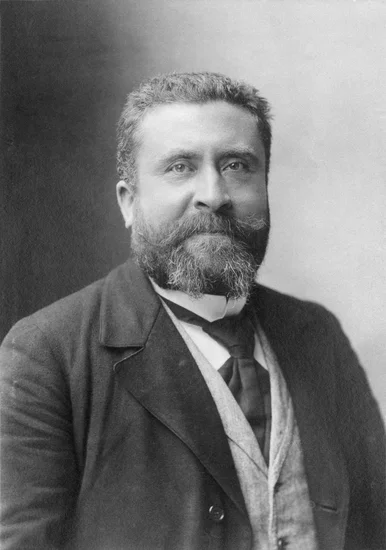
French journalist and socialist politician Jean Jaurès was assassinated in Paris by a nationalist fanatic. His death eliminated one of Europe’s most prominent peace advocates just days before World War I began.
Jaurès had worked tirelessly to prevent European war through international socialist cooperation. His assassination removed a powerful voice for peace and demonstrated the violent tensions preceding the global conflict.
1920 – Greek Diplomat Ion Dragoumis Killed
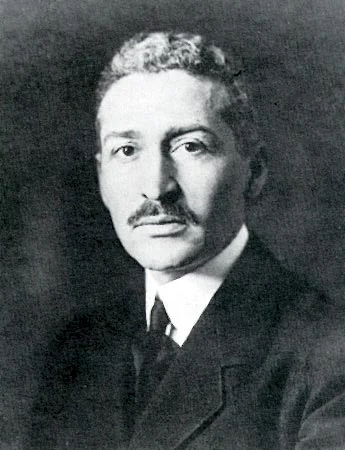
Greek philosopher and diplomat Ion Dragoumis died under mysterious circumstances during a period of political upheaval. His death represented the loss of an influential intellectual figure in Greek politics and culture.
Dragoumis had advocated for Greek territorial expansion and cultural renaissance. His writings and diplomatic work significantly influenced Greek national identity and foreign policy during a crucial historical period.
1986 – Japanese Diplomat Chiune Sugihara Dies
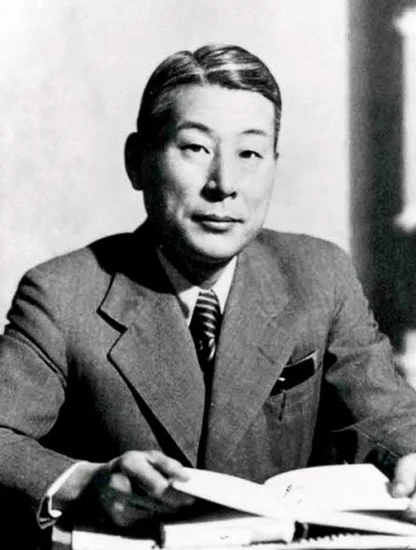
Chiune Sugihara, the Japanese diplomat who saved thousands of Jewish refugees during World War II, passed away. His courageous actions in Lithuania violated official orders but saved countless lives.
Sugihara issued transit visas to Jewish refugees fleeing Nazi persecution, demonstrating extraordinary moral courage. His humanitarian efforts earned him recognition as “Righteous Among the Nations” and inspired future generations.
Business and Economic Events on July 31
1991 – START I Arms Reduction Treaty Signed
The United States and Soviet Union signed the START I Strategic Arms Reduction Treaty, the first agreement to reduce both countries’ nuclear stockpiles with verification procedures. This landmark treaty marked a significant step toward nuclear disarmament.
The treaty required both superpowers to reduce their strategic nuclear warheads by approximately 30 percent. This historic agreement demonstrated that Cold War tensions could be resolved through diplomatic negotiations and mutual trust.
1975 – Delta Air Lines Flight 723 Crashes in Boston
Delta Air Lines Flight 723 crashed while attempting to land in heavy fog at Boston’s Logan International Airport, killing 89 people. The tragic accident highlighted the dangers of landing in poor weather conditions.
The crash investigation revealed problems with approach procedures and weather detection systems. This disaster led to significant improvements in aviation safety protocols and airport landing assistance technology.
1997 – FedEx Flight 14 Crashes at Newark Airport
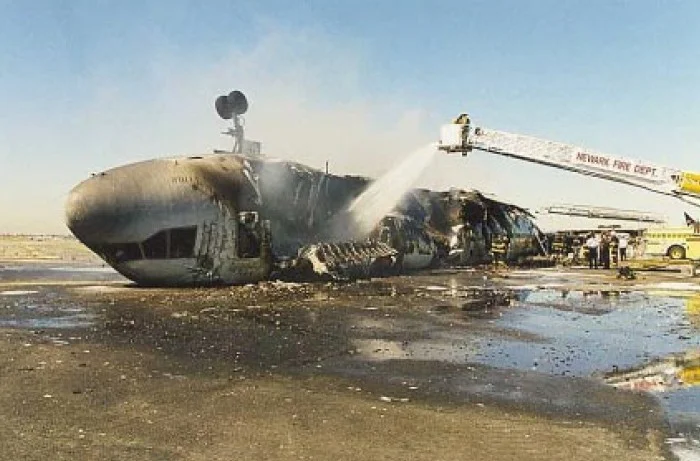
FedEx Express Flight 14 crashed during landing at Newark International Airport, injuring five crew members. The accident involved a cargo aircraft and demonstrated the risks faced by freight aviation operations.
The crash investigation focused on mechanical failures and pilot response procedures. This incident contributed to enhanced safety training and equipment standards for cargo airline operations.
Transportation and Infrastructure on July 31
1966 – MV Darlwyne Disappears Off Cornwall Coast
The pleasure cruiser MV Darlwyne vanished off the Cornwall coast with all 31 passengers and crew aboard. This maritime disaster shocked the British public and sparked extensive search and rescue operations.
The vessel’s disappearance remained one of Britain’s most mysterious maritime accidents. Despite extensive investigations, the exact cause of the tragedy was never definitively determined, leading to improved safety regulations for passenger vessels.
1987 – Deadly Tornado Strikes Edmonton, Alberta
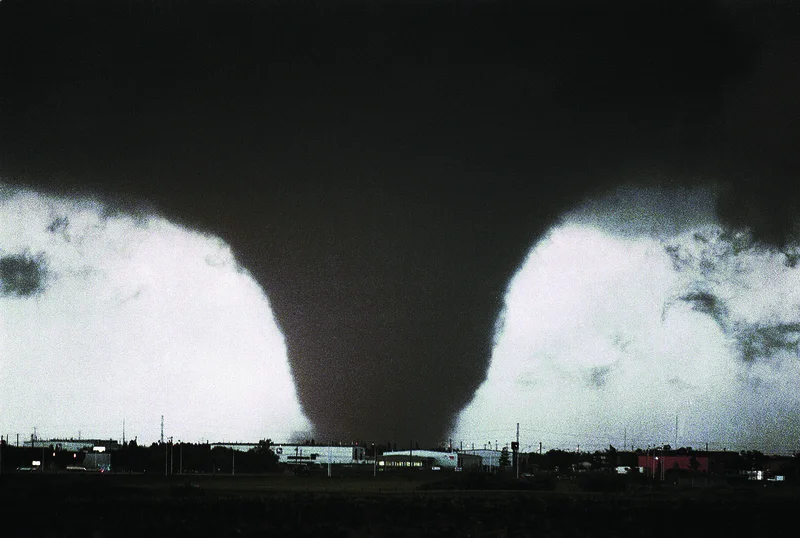
A powerful tornado struck Edmonton, Alberta, killing 27 people and causing extensive property damage. This rare but devastating weather event demonstrated the destructive power of severe storms in Canadian prairie regions.
The tornado carved a path through residential areas and industrial facilities, leaving hundreds homeless. This natural disaster led to improved weather warning systems and emergency response procedures across Canada.
1988 – Ferry Terminal Bridge Collapses in Malaysia
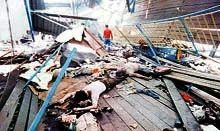
A bridge at the Sultan Abdul Halim ferry terminal collapsed in Butterworth, Penang, Malaysia, killing 32 people and injuring 1,674 others. This structural failure highlighted the importance of proper infrastructure maintenance and crowd control.
The collapse occurred during peak travel hours when the bridge was crowded with passengers. This tragedy prompted comprehensive reviews of transportation infrastructure safety standards throughout Malaysia.
Sports and Recreation on July 31
2012 – Michael Phelps Breaks Olympic Medal Record

American swimmer Michael Phelps broke the Olympic medal record previously held by Soviet gymnast Larisa Latynina since 1964. Phelps achieved this milestone at the London Olympics, cementing his status as the greatest Olympian of all time.
His record-breaking performance captivated global audiences and demonstrated American dominance in competitive swimming. Phelps would continue adding to his medal total, ultimately winning 28 Olympic medals throughout his career.
1954 – Argentine Racing Driver Onofre Marimón Dies

Argentine Formula One racing driver Onofre Marimón died in a crash during practice for the German Grand Prix. His death represented a tragic loss for Argentine motorsport and highlighted the dangers of early Formula One racing.
Marimón had become Argentina’s first successful Formula One driver and inspired a generation of racing enthusiasts. His legacy contributed to South America’s growing involvement in international motorsport competition.
1964 – Country Music Star Jim Reeves Dies
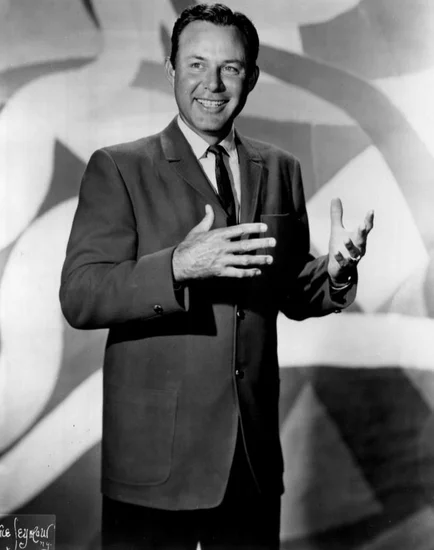
American country music singer Jim Reeves died in a plane crash at the height of his career. His smooth vocal style and crossover appeal had made him one of country music’s most popular performers.
Reeves had achieved international success and helped establish country music’s global appeal. His recordings continued selling millions of copies after his death, influencing countless country and popular music artists.
Notable Births on July 31
1901 – Jean Dubuffet, French Painter and Sculptor
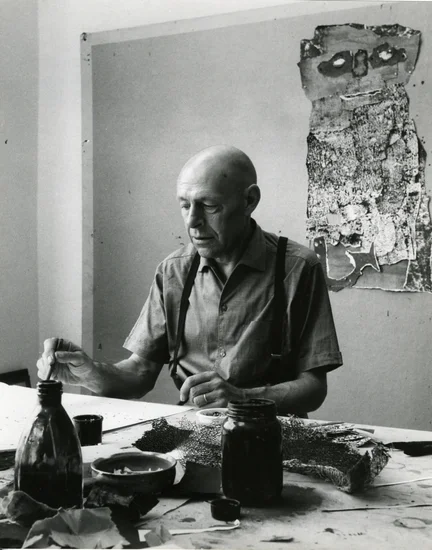
Jean Dubuffet was born in Le Havre, France, destined to become one of the most influential artists of the 20th century. His early exposure to French artistic traditions would shape his revolutionary approach to visual art.
Dubuffet would later develop the concept of “Art Brut” (raw art) and challenge conventional artistic standards. His innovative techniques and philosophical approach to creativity transformed modern art and influenced countless contemporary artists.
1912 – Milton Friedman, American Economist
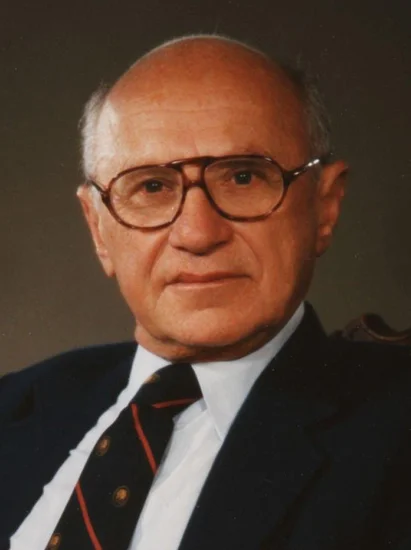
Milton Friedman entered the world in Brooklyn, New York, beginning a life that would revolutionize economic thought. His childhood during the Great Depression would profoundly influence his understanding of economic systems.
Friedman would become a Nobel Prize-winning economist and advocate for free-market capitalism. His economic theories influenced government policies worldwide and shaped modern conservative economic philosophy.
1918 – Primo Levi, Italian Chemist and Author
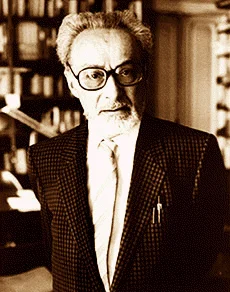
Primo Levi was born in Turin, Italy, to a Jewish family that would face persecution during World War II. His early scientific education would later provide unique perspective on his wartime experiences.
Levi survived the Auschwitz concentration camp and became one of the most important Holocaust witnesses. His literary works combined scientific precision with profound humanity, creating lasting testimonies to human resilience.
1965 – J.K. Rowling, English Author

Joanne Rowling was born in Yate, Gloucestershire, England, beginning a journey that would transform children’s literature. Her childhood love of storytelling would eventually create one of the world’s most beloved fantasy series.
Rowling would write the Harry Potter series, becoming one of the world’s most successful authors. Her magical world captivated readers globally and revitalized interest in reading among young people worldwide.
1966 – Dean Cain, American Actor

Dean Cain was born in Mount Clemens, Michigan, destined to become a prominent television and film actor. His athletic background and natural charisma would lead to success in entertainment.
Cain would achieve fame portraying Superman in the television series “Lois & Clark: The New Adventures of Superman.” His portrayal of the iconic superhero made him a household name and launched his successful acting career.
1969 – Antonio Conte, Italian Footballer and Manager

Antonio Conte was born in Lecce, Italy, beginning a career that would span playing and coaching at the highest levels. His tactical understanding and leadership qualities emerged early in his football development.
Conte would become a successful player with Juventus and the Italian national team before transitioning to coaching. His tactical innovations and passionate coaching style earned him success with major European clubs.
1978 – Will Champion, English Drummer

Will Champion was born in Southampton, England, destined to become the drummer for one of the world’s most successful rock bands. His musical education and natural rhythm would prove essential to his future success.
Champion would join Coldplay as their drummer, helping create some of the most popular alternative rock music of the 21st century. The band’s global success made him one of the most recognizable drummers in contemporary music.
Notable Deaths on July 31
1944 – Antoine de Saint-Exupéry, French Pilot and Poet
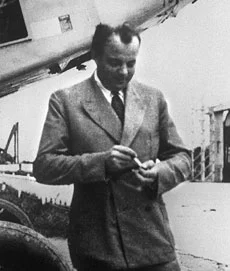
Antoine de Saint-Exupéry disappeared while flying a reconnaissance mission over the Mediterranean during World War II. The beloved author of “The Little Prince” vanished without trace, creating one of literature’s most enduring mysteries.
Saint-Exupéry had combined his passion for aviation with literary genius to create timeless works. His philosophical writings about human nature and the meaning of life continue inspiring readers worldwide decades after his disappearance.
1993 – Baudouin, King of Belgium
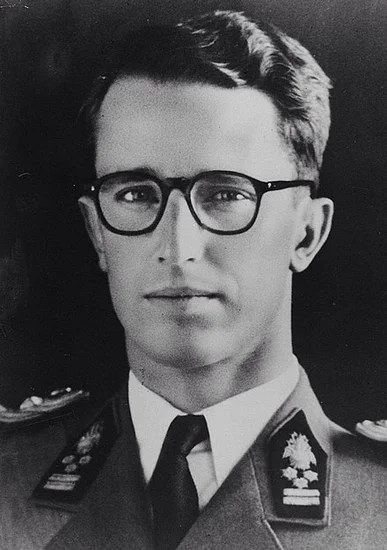
King Baudouin of Belgium died after ruling for 42 years, having guided his country through significant political and social transformations. His reign witnessed Belgium’s evolution into a modern federal state.
Baudouin had earned respect for his diplomatic skills and commitment to Belgian unity. His death marked the end of an era and led to his brother Albert II ascending the throne.
2009 – Bobby Robson, English Footballer and Manager
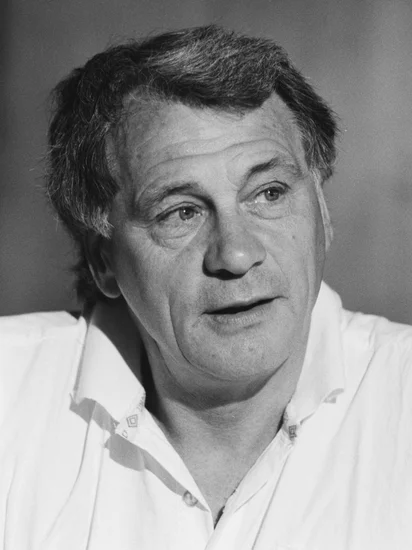
Bobby Robson died after a distinguished career as both player and manager in English football. His tactical innovations and leadership abilities made him one of England’s most respected football figures.
Robson had managed the England national team and several top European clubs with remarkable success. His contributions to football development and charitable work earned him widespread admiration throughout the sporting world.
2012 – Gore Vidal, American Novelist and Critic
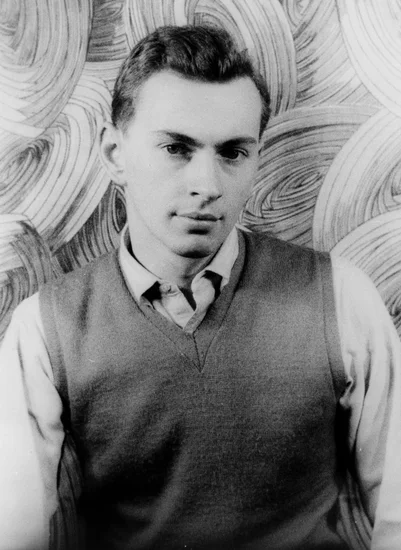
Gore Vidal died at his home in Los Angeles, ending a prolific literary career spanning seven decades. His sharp wit and controversial political commentary made him one of America’s most provocative intellectuals.
Vidal had written numerous acclaimed novels and essays while maintaining an active presence in American political discourse. His fearless criticism of American foreign policy and social institutions sparked national debates throughout his career.
2017 – Jeanne Moreau, French Actress
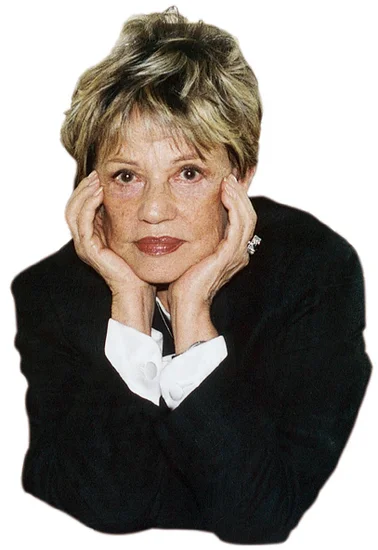
Jeanne Moreau died at her home in Paris, concluding a legendary career that defined French cinema for generations. Her performances in French New Wave films established her as one of cinema’s greatest actresses.
Moreau had worked with directors like François Truffaut and Jean-Luc Godard, creating iconic performances that influenced international cinema. Her artistic contributions earned her numerous awards and recognition as a cultural treasure of France.
2022 – Bill Russell, NBA Hall of Fame Player and Coach

Bill Russell died peacefully at his home, ending a revolutionary career that transformed professional basketball. His athletic achievements and civil rights activism made him a towering figure in American sports history.
Russell had won 11 NBA championships with the Boston Celtics and broke numerous racial barriers in professional sports. His leadership on and off the court inspired generations of athletes and contributed to social progress in America.
Holidays and Observances on July 31
Christian Feast Day of Ignatius of Loyola
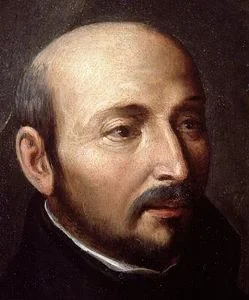
The Catholic Church celebrates the feast day of Saint Ignatius of Loyola, founder of the Society of Jesus (Jesuits). This religious observance honors his spiritual contributions and educational legacy.
Ignatius developed the Spiritual Exercises and established educational institutions worldwide. His religious order became instrumental in Catholic education and missionary work across the globe.
Lā Hae Hawaiʻi Day in Hawaii
Hawaii observes Lā Hae Hawaiʻi Day, celebrating Hawaiian flag and cultural heritage. This state holiday recognizes the unique history and sovereignty of the Hawaiian Islands.
The observance includes cultural celebrations and educational activities about Hawaiian history. Many Native Hawaiians use this day to reflect on their cultural identity and political aspirations.
Warriors’ Day in Malaysia
Malaysia commemorates Warriors’ Day, honoring military personnel who died serving their country. This solemn observance includes ceremonies at the National Monument and military installations.
The day recognizes sacrifices made by Malaysian armed forces in various conflicts and peacekeeping missions. Veterans and active military personnel participate in memorial services and patriotic ceremonies throughout the nation.
